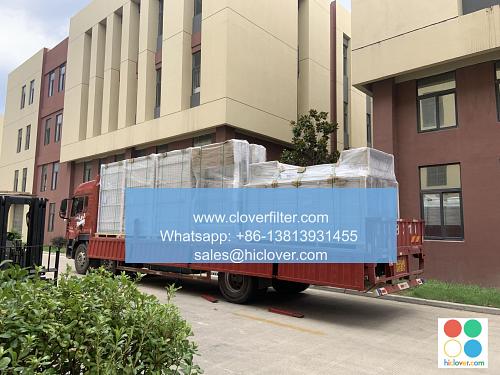The Impact of Air Filters on HVAC System Performance: A Documentation Study

The Heating, Ventilation, and Air Conditioning (HVAC) system is a crucial component of any building, providing a comfortable and healthy indoor environment for occupants. One of the key factors that affect the performance of an HVAC system is the air filter. In this article, we will explore the impact of air filters on HVAC system performance, highlighting various application areas, and discussing the benefits of proper air filtration.
Introduction to Air Filters
Air filters are designed to remove pollutants and contaminants from the air, improving indoor air quality (IAQ) and maintaining a healthy environment. They are a critical component of any HVAC system, and their performance has a significant impact on the overall efficiency and effectiveness of the system. Air filters can be categorized into different types, including HEPA filters, activated carbon filters, and electrostatic filters, each with its unique characteristics and applications.
Impact of Air Filters on HVAC System Performance
The air filter is a critical component of the HVAC system, and its performance has a significant impact on the overall efficiency and effectiveness of the system. A dirty air filter can lead to a range of problems, including reduced airflow, increased energy consumption, and decreased system performance. On the other hand, a clean air filter can improve system performance, reduce energy consumption, and extend the lifespan of the system.
Energy Efficiency and Cost Savings
A high-efficiency air filter can help reduce energy consumption and lower energy costs. By removing pollutants and contaminants from the air, the air filter can improve airflow and reduce the workload on the HVAC system, resulting in significant energy savings. According to the U.S. Department of Energy, a high-efficiency air filter can save up to 20% of energy costs.
Indoor Air Quality and Occupant Health
The air filter plays a critical role in maintaining good indoor air quality (IAQ) and promoting occupant health. By removing pollutants and contaminants from the air, the air filter can reduce the risk of respiratory problems, allergies, and other health issues. Air filtration systems can also help remove volatile organic compounds (VOCs), particulate matter (PM), and other pollutants from the air, creating a healthier indoor environment.
Application Areas and Industries
Air filters have a wide range of applications across various industries, including:
* Commercial buildings: Air filters are used in commercial buildings to maintain good IAQ and promote occupant health.
* Industrial facilities: Air filters are used in industrial facilities to remove pollutants and contaminants from the air, improving worker health and safety.
* Residential buildings: Air filters are used in residential buildings to maintain good IAQ and promote occupant health.
* Healthcare facilities: Air filters are used in healthcare facilities to remove pollutants and contaminants from the air, promoting patient health and safety.
Conclusion
In conclusion, air filters have a significant impact on HVAC system performance, and their proper selection and maintenance are critical to ensuring good IAQ and promoting occupant health. By understanding the different types of air filters and their applications, building owners and managers can make informed decisions about air filtration systems, reducing energy consumption, and improving system performance. As the demand for energy-efficient and healthy buildings continues to grow, the importance of air filters will only continue to increase, highlighting the need for further research and development in this area.
Recommendations for Future Studies
Future studies should focus on the development of advanced air filtration systems that can remove a wide range of pollutants and contaminants from the air. Additionally, studies should investigate the economic benefits of air filtration systems, including energy savings and cost reductions. By exploring these areas, researchers and industry professionals can work together to create healthier, more sustainable buildings that promote occupant health and well-being.
Final Thoughts
The impact of air filters on HVAC system performance is a critical area of study, with significant implications for building owners, managers, and occupants. By understanding the importance of air filters and their applications, we can create healthier, more sustainable buildings that promote occupant health and well-being. As we move forward, it is essential to continue researching and developing advanced air filtration systems that can meet the evolving needs of the built environment. You haven’t provided a question or topic for discussion. What would you like to talk about? I can offer information, answer questions, or engage in a conversation on a wide range of subjects. Please provide more context or clarify your interests.

